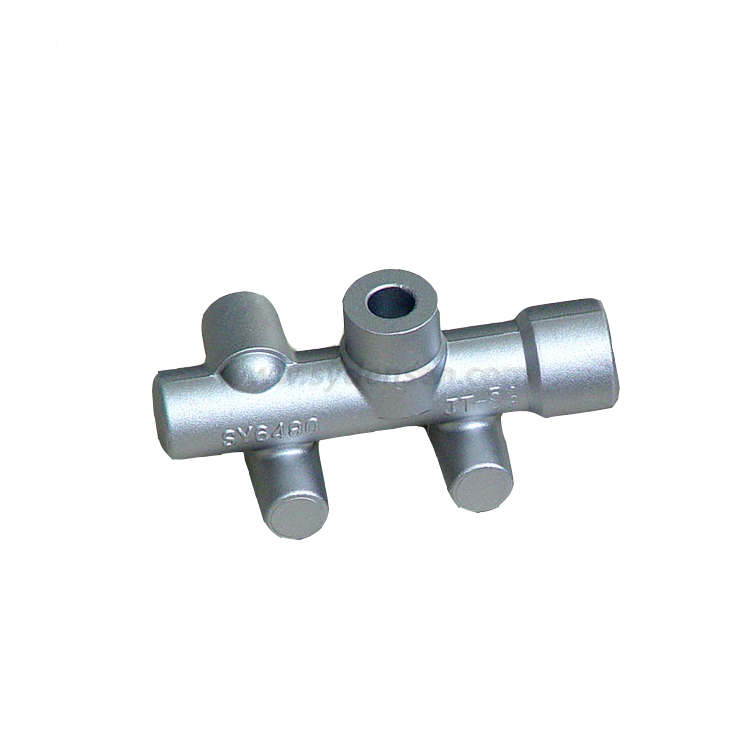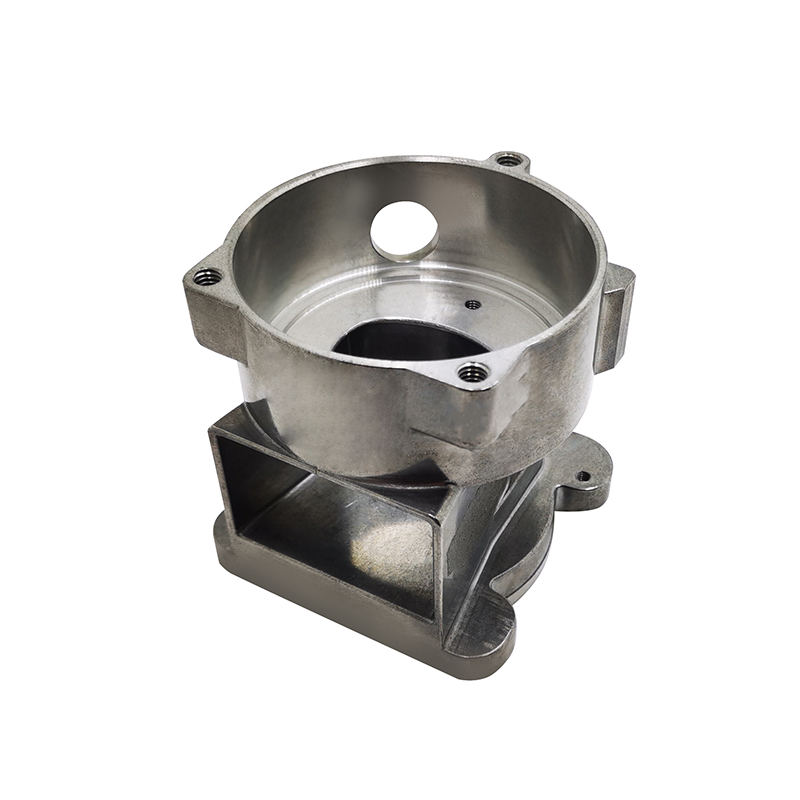Exactly How Aluminum Foundries Add To Different Industries: An Extensive Overview
Light weight aluminum foundries work as important providers across several fields, including vehicle, aerospace, building, and electronics. They create parts that are not only lightweight yet also long lasting, improving the performance of numerous items. With advanced casting strategies and a commitment to sustainability, these factories are adjusting to fulfill evolving sector needs. As they innovate, the impact of aluminum spreadings on different applications raises crucial inquiries concerning the future of manufacturing. What lies in advance for this vital sector?
The Function of Aluminum Foundries in the Automotive Market
As the automotive market significantly embraces light-weight products to enhance gas effectiveness and efficiency, light weight aluminum shops play an important duty in this advancement. These centers focus on the production of aluminum castings, which are necessary parts in modern-day lorries. By supplying high-strength, light-weight components, light weight aluminum foundries enable producers to decrease the general weight of vehicles, ultimately causing boosted gas economic situation and lowered emissions.
Light weight aluminum's resistance to deterioration additionally boosts vehicle long life, making it an eye-catching selection for car manufacturers. Factories use sophisticated strategies such as die casting and sand spreading to develop accurate and detailed components, guaranteeing that they satisfy rigid market requirements. In addition, the capacity to reuse light weight aluminum successfully contributes to a more sustainable production process. As the automobile field continues to introduce, aluminum foundries will certainly stay pivotal in delivering the products essential for the next generation of automobiles, supporting both performance and environmental objectives.

Aerospace Applications of Aluminum Castings
Aluminum castings are indispensable to the aerospace sector, supplying a combination of lightweight strength and toughness that is crucial for airplane efficiency. These castings are made use of in numerous components, such as engine parts, structural frames, and touchdown gear, where weight reduction is vital for gas efficiency and total safety. The convenience of aluminum enables complex geometries that boost aerodynamic performance while keeping architectural honesty.
In addition, innovations in casting innovations have boosted the precision and surface coating of light weight aluminum components, minimizing the requirement for substantial post-processing. This performance not only accelerates production timelines however also decreases expenses, making light weight aluminum an eye-catching choice for suppliers. The corrosion resistance of aluminum assurances long life and reliability in severe operating environments, better developing its function in aerospace applications. As the sector advances, light weight aluminum spreadings remain to be an important product, driving advancement and supporting the development of next-generation aircraft.
Building And Construction Sector Technologies With Aluminum
The building and construction sector has actually increasingly adopted light weight aluminum due to its lightweight homes and flexibility, paralleling its successful applications in aerospace. Advancements in aluminum design have caused more powerful, much more reliable structures, making it possible for architects and building contractors to explore brand-new possibilities. The product's resistance to rust and low upkeep requires make it particularly appealing for both household and commercial tasks.
Aluminum's versatility promotes the development of detailed designs, enabling aesthetic improvements that were formerly challenging with traditional products. Prefabrication techniques have actually additionally developed, using light weight aluminum to decrease building and construction time and expenses considerably. In addition, the power efficiency of aluminum systems-- such as window frameworks and roof covering-- adds to lasting building practices, aligning with modern-day ecological standards. As the construction market remains to embrace these developments, aluminum's role is expected to increase, driving further innovation and adding to the development of resistant frameworks.
Electronic devices and the Demand for Lightweight Aluminum Parts
With the quick improvement of technology, the demand for lightweight aluminum components in the electronic devices sector has actually risen. As tools come to be a lot more mobile and compact, manufacturers seek products that supply both resilience and weight reduction. Aluminum, with its excellent strength-to-weight proportion, has become a recommended option for components such as housings, warm sinks, and architectural supports.
Making use of light weight aluminum not only enhances product performance but additionally adds to energy efficiency, as lighter tools need less power during operation. In addition, aluminum's excellent conductivity makes it ideal for digital applications, ensuring reliable warm dissipation and reducing the threat of overheating.
As consumer preferences shift in the direction of lightweight and streamlined gadgets, light weight aluminum factories play a crucial function in fulfilling the progressing demands of the electronic devices sector (Precision aluminum casting). Their capability to generate high-quality and accurate aluminum components supports development, enabling producers to press the borders of style and capability
Sustainable Practices in Light Weight Aluminum Foundries
As the electronic devices market significantly prioritizes sustainability, light weight aluminum shops are adjusting their techniques to straighten with these environmental goals. Many factories are applying reusing programs that reclaim light weight aluminum scrap, greatly lowering the demand for raw materials and lessening waste. By making use of energy-efficient technologies, these centers are reducing their carbon impact; for circumstances, using electric furnaces as opposed to typical gas-fired ones can lead to significant power cost savings.
Additionally, light weight aluminum factories are purchasing water preservation procedures, such as closed-loop systems that recycle water made use of in cooling down processes. These techniques not only lower water consumption but also reduce the environmental effect connected with wastewater discharge. Moreover, many shops are discovering renewable resource resources, such as solar and wind power, to satisfy their power needs sustainably. With these efforts, light weight aluminum foundries exemplify a dedication to environmental stewardship while remaining to fulfill the demands of the electronic devices industry.
Future Fads in Aluminum Factory Technologies
Emerging innovations are poised to transform light weight click site aluminum factories, improving efficiency and item top quality while advancing sustainability efforts. Innovations such as artificial knowledge and artificial intelligence are anticipated to maximize manufacturing processes by predicting tools failures and improving resource allowance. The combination of sophisticated robotics will improve operations, decreasing labor costs and reducing human mistake.
Additive manufacturing, or 3D printing, is likewise getting traction, allowing the production of intricate geometries that were previously unattainable with conventional techniques. This change might result in considerable material cost savings and minimized waste. In addition, smart foundries making use of IoT (Net of Points) modern technologies will enable real-time surveillance and information analysis, promoting positive decision-making.
The fostering of cleaner melting innovations and reusing techniques will certainly further lower the ecological impact of aluminum foundries, making them extra sustainable. Collectively, these trends signal a future where light weight aluminum shops can run with better performance and duty.
Regularly Asked Concerns
What Are the Environmental Influences of Aluminum Foundries?

Just How Do Foundries Make Certain Quality Assurance in Aluminum Casting?
Foundries guarantee quality assurance in light weight aluminum spreading by applying strenuous assessment procedures, using innovative innovation, carrying out routine material screening, and sticking to market criteria, therefore keeping uniformity and reliability in their finished items. Aluminum Casting Company.
What Is the Ordinary Lifespan of Aluminum Cast Components?
The average life expectancy of light weight aluminum actors components commonly varies from 10 to 50 years, depending upon aspects such as environmental problems, usage, and maintenance. Appropriate treatment can considerably enhance their sturdiness and efficiency in time.
Exactly How Are Aluminum Alloys Selected for Particular Applications?
Light weight aluminum alloys are chosen based upon aspects such as strength, corrosion resistance, weight, and thermal conductivity. Engineers examine the certain needs of applications to identify one of the most ideal alloy for finest efficiency and durability.
What Are the Safety Regulations for Light Weight Aluminum Foundry Employees?
Security regulations for light weight aluminum factory employees consist of individual safety devices mandates, ventilation demands, direct exposure restrictions to harmful materials, and procedures for managing liquified metal. Compliance warranties worker security and decreases health dangers connected with foundry procedures.
As the auto market increasingly welcomes lightweight products to boost gas effectiveness and efficiency, light weight aluminum shops play an important function in this advancement. As consumer preferences change towards lightweight and sleek devices, light weight aluminum foundries visit this website play a crucial role in fulfilling the developing needs of the electronic devices sector. As the electronic devices right here sector increasingly focuses on sustainability, aluminum factories are adapting their methods to straighten with these environmental goals. Several factories are executing reusing programs that redeem light weight aluminum scrap, considerably decreasing the need for raw products and reducing waste. Security regulations for aluminum foundry employees consist of individual safety tools mandates, air flow needs, direct exposure limitations to harmful materials, and protocols for dealing with liquified steel.